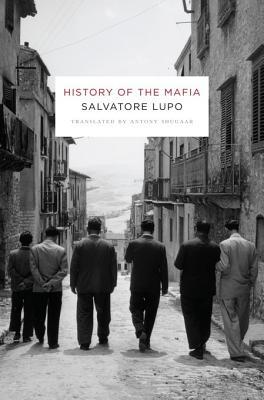
History of the Mafia
کتاب های مرتبط
- اطلاعات
- نقد و بررسی
- دیدگاه کاربران
نقد و بررسی

June 1, 2009
A dark thread of crime and corruption weaves insidiously through the fabric of Sicilian society in this intricate historical study. Historian Lupo focuses on the Italian branch of the Mafia, following it from its roots in Italy’s 19th-century wars of unification to the anti-Mafia maxi-trial of the 1980s and 1990s, and tracing its infiltration of citrus-growing, construction and other sectors of the economy. He rejects the idea of the organization as a holdover from a traditional Sicilian peasant culture with a socially benign ethos of solidarity and honor as a self-serving Mafia mythology. Instead, he argues, mafiosi run a thoroughly modern, prosaic, protection racket, fomenting crime and then posing as intermediaries who can suppress it, seeking protection and wielding influence in the highest economic and political circles, eager to abrogate omertá
and cooperate with the police when it suits their interests. Lupo’s rather dense academic treatment of the subject presupposes a good knowledge of Sicilian history as it proceeds through highly detailed but too loosely organized accounts of specific mafioso life histories, police initiatives and major trials, in which one often loses sight of the forest amid the trees. There are stimulating insights, but the book is almost as byzantine as the Mafia intrigues it appraises.

August 15, 2009
This scholarly treatise on the Sicilian Mafia covers much the same ground as John Dickie's "Cosa Nostra: A History of the Sicilian Mafia". But it's unique in that Lupo is an Italian national and academic (history, Univ. of Palermo) who offers a detailed study of the Mafia's origin in Italy and its later move to America. Avoiding the sensationalism often found in books about organized crime, Lupo makes a rare contribution by combining history and politics, beginning in the 1860s. He explains that the unification of the Kingdom of Italy presented a favorable environment for the Mafia to emerge, as land ownership became increasingly commercialized, with lands held secure under the watchful eyes of the landowner, prominent citizens, and local criminals. Lupo then discusses the role played by totalitarianism and democratization when the Mafia arrived in America, initially in Louisiana, and looks at post-World War II Italy, when the Mafia presented itself as an alternative to the state. VERDICT Given its scholarly bent, this would best serve serious students of the Mafia, particularly its history, or of the history of organized crime.Krista Bush, Univ. of New Haven Lib., West Haven, CT
Copyright 2009 Library Journal, LLC Used with permission.

























دیدگاه کاربران